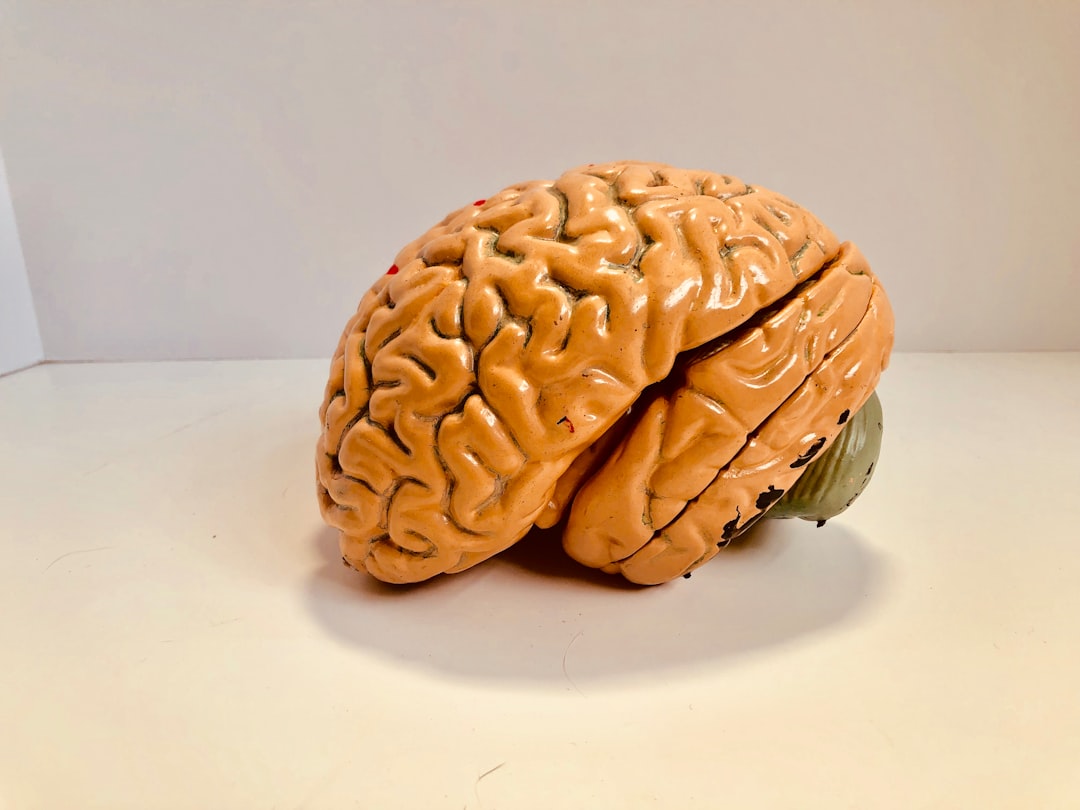Attention-deficit/hyperactivity disorder (ADHD) is a neurodevelopmental disorder that affects both children and adults. It is characterized by symptoms such as inattention, hyperactivity, and impulsivity. These symptoms can significantly impact an individual’s daily life, including their academic performance, work productivity, and relationships. Accurate diagnosis and testing are crucial for proper treatment and management of ADHD.
Key Takeaways
- ADHD is a neurodevelopmental disorder that affects both children and adults.
- Accurate ADHD testing is crucial in Charlotte, NC to ensure proper diagnosis and treatment.
- There are various types of ADHD tests available in Charlotte, NC, including behavioral assessments and cognitive tests.
- The process of ADHD testing in Charlotte, NC typically involves a comprehensive evaluation by a healthcare professional.
- Accurate ADHD testing in Charlotte, NC can lead to benefits such as improved academic and occupational performance, better relationships, and increased self-esteem.
Importance of Accurate ADHD Testing in Charlotte, NC
In Charlotte, North Carolina, ADHD is a prevalent condition that affects many individuals. According to the Centers for Disease Control and Prevention (CDC), approximately 11% of children aged 4-17 in North Carolina have been diagnosed with ADHD. However, accurate testing is essential to ensure that individuals receive the appropriate treatment and support they need.
Accurate testing allows healthcare professionals to determine whether an individual truly has ADHD or if their symptoms may be caused by other factors. Misdiagnosis can lead to ineffective treatment and unnecessary medication. By conducting thorough testing, healthcare professionals can gather comprehensive information about an individual’s symptoms, medical history, and daily functioning to make an accurate diagnosis.
Types of ADHD Tests Available in Charlotte, NC
In Charlotte, there are several types of tests available to diagnose ADHD accurately. These tests may include:
1. Clinical Interviews: A healthcare professional will conduct a comprehensive interview with the individual and their family members to gather information about their symptoms, medical history, and daily functioning. This interview helps provide a holistic view of the individual’s experiences and challenges.
2. Rating Scales: Rating scales are questionnaires that assess an individual’s symptoms and behaviors related to ADHD. These scales are typically completed by the individual themselves, their parents or caregivers, and teachers if applicable. The results provide valuable information about the severity of symptoms and their impact on different areas of life.
3. Cognitive Tests: Cognitive tests assess an individual’s cognitive abilities, such as attention, memory, and executive functioning. These tests can help identify specific areas of difficulty and determine the impact of ADHD on cognitive functioning.
The Process of ADHD Testing in Charlotte, NC
| Step | Description | Timeframe |
|---|---|---|
| Referral | Primary care physician refers patient to specialist | Varies |
| Evaluation | Specialist evaluates patient’s symptoms and medical history | 1-2 hours |
| Testing | Specialist administers tests to assess attention and behavior | 2-4 hours |
| Diagnosis | Specialist reviews test results and makes diagnosis | 1-2 weeks |
| Treatment | Specialist recommends treatment plan, which may include medication and therapy | Ongoing |
The process of ADHD testing in Charlotte typically involves several steps to ensure an accurate diagnosis. These steps may include:
1. Initial Consultation: The individual or their parents/caregivers will meet with a healthcare professional to discuss their concerns and provide a detailed history of symptoms. This initial consultation helps determine if further testing is necessary.
2. Comprehensive Evaluation: If deemed necessary, the individual will undergo a comprehensive evaluation that may include clinical interviews, rating scales, and cognitive tests. This evaluation provides a thorough assessment of the individual’s symptoms and functioning.
3. Feedback and Diagnosis: After completing the evaluation, the healthcare professional will provide feedback to the individual or their parents/caregivers. They will discuss the results of the testing and make a diagnosis based on the criteria outlined in the Diagnostic and Statistical Manual of Mental Disorders (DSM-5).
4. Treatment Planning: Once a diagnosis is made, the healthcare professional will work with the individual or their parents/caregivers to develop a personalized treatment plan. This plan may include medication, therapy, and other interventions tailored to the individual’s needs.
Benefits of Accurate ADHD Testing in Charlotte, NC
Accurate ADHD testing in Charlotte offers several benefits for individuals with ADHD:
1. Improved Treatment and Management: Accurate testing ensures that individuals receive appropriate treatment for their symptoms. This may include medication, therapy, or a combination of both. With proper treatment, individuals can experience improved symptom management and overall quality of life.
2. Better Understanding of Individual Needs: Accurate testing provides valuable insights into an individual’s strengths and challenges related to ADHD. This understanding allows healthcare professionals to tailor interventions and support to meet their specific needs.
3. Enhanced Academic and Occupational Success: By accurately identifying and addressing ADHD symptoms, individuals can improve their academic performance and work productivity. With the right support, they can develop strategies to manage their symptoms and succeed in their chosen endeavors.
ADHD Self-Care Strategies for Adults

Managing ADHD symptoms can be challenging for adults, but there are several self-care strategies that can help:
1. Establish a Routine: Creating a structured daily routine can help individuals with ADHD stay organized and manage their time effectively. This includes setting regular sleep and meal times, scheduling tasks and activities, and using reminders or alarms.
2. Break Tasks into Smaller Steps: Large tasks can feel overwhelming for individuals with ADHD. Breaking them down into smaller, more manageable steps can make them feel more achievable. This approach also helps individuals stay focused and motivated.
3. Use Visual Aids: Visual aids, such as calendars, to-do lists, and color-coded schedules, can be helpful for individuals with ADHD. These tools provide visual cues and reminders, making it easier to stay organized and remember important tasks or appointments.
ADHD Self-Care Strategies for Children and Teens
Children and teens with ADHD can benefit from the following self-care strategies:
1. Establish Consistent Routines: Consistency is key for children and teens with ADHD. Establishing regular routines for waking up, going to bed, meals, homework, and other activities can help them stay organized and manage their time effectively.
2. Provide Clear Instructions: Individuals with ADHD may struggle with following instructions or remembering multiple steps. Providing clear, concise instructions and breaking tasks into smaller steps can make it easier for them to understand and complete tasks successfully.
3. Encourage Physical Activity: Regular physical activity has been shown to improve focus and reduce hyperactivity in individuals with ADHD. Encourage children and teens to engage in activities they enjoy, such as sports, dancing, or martial arts.
How to Manage ADHD Symptoms at Home
Managing ADHD symptoms at home requires creating a supportive environment and implementing strategies that promote focus and organization:
1. Minimize Distractions: Create a quiet, clutter-free space for individuals with ADHD to work or study. Minimize distractions such as noise, visual stimuli, and electronic devices.
2. Use Visual Cues: Visual cues can help individuals with ADHD stay organized and remember important tasks or routines. Use color-coded labels, charts, or checklists to provide visual reminders and prompts.
3. Break Tasks into Manageable Chunks: Large tasks can be overwhelming for individuals with ADHD. Break them down into smaller, more manageable chunks and provide regular breaks to prevent burnout.
ADHD Medication Management and Support
Medication is often prescribed as part of the treatment plan for individuals with ADHD. It can help reduce symptoms such as inattention, hyperactivity, and impulsivity. However, medication management is crucial to ensure its effectiveness and minimize side effects.
1. Regular Follow-ups: Regular follow-up appointments with a healthcare professional are essential to monitor the individual’s response to medication and make any necessary adjustments.
2. Open Communication: It is important for individuals taking medication for ADHD to communicate openly with their healthcare professional about any side effects or concerns they may have. This allows for timely adjustments or changes in medication if needed.
3. Supportive Environment: Creating a supportive environment at home, school, or work is crucial for individuals taking medication for ADHD. Educate family members, teachers, and colleagues about the condition and how they can provide support.
Finding the Right Support System for ADHD in Charlotte, NC
Finding the right support system is essential for individuals with ADHD in Charlotte, NC. There are several options available:
1. Healthcare Professionals: Seek out healthcare professionals who specialize in ADHD diagnosis and treatment. They can provide guidance, support, and ongoing management of symptoms.
2. Support Groups: Joining a support group for individuals with ADHD can provide a sense of community and understanding. These groups offer opportunities to share experiences, learn coping strategies, and receive support from others who are facing similar challenges.
3. Educational Resources: There are many educational resources available in Charlotte, NC, that provide information and support for individuals with ADHD and their families. These resources may include workshops, seminars, and online materials.
In conclusion, accurate ADHD testing is crucial for individuals in Charlotte, NC, to receive the appropriate diagnosis and treatment. Through comprehensive evaluations and a variety of tests, healthcare professionals can gather the necessary information to make an accurate diagnosis. This leads to improved treatment and management of symptoms, better understanding of individual needs, and enhanced academic and occupational success. Additionally, implementing self-care strategies at home and finding the right support system can further support individuals with ADHD in managing their symptoms and thriving in their daily lives.
If you’re looking for more information on ADHD testing in Charlotte, NC, you might find this article on ADHD-Testing.com helpful. It provides insights into the importance of early diagnosis and the benefits of seeking professional help. To learn more, check out their article here. Additionally, they have a comprehensive guide on the different types of ADHD tests available, which you can find here.
FAQs
What is ADHD?
ADHD stands for Attention Deficit Hyperactivity Disorder. It is a neurodevelopmental disorder that affects a person’s ability to focus, pay attention, and control impulsive behaviors.
What are the symptoms of ADHD?
The symptoms of ADHD include inattention, hyperactivity, and impulsivity. Inattention symptoms include difficulty paying attention, forgetfulness, and being easily distracted. Hyperactivity symptoms include restlessness, fidgeting, and excessive talking. Impulsivity symptoms include interrupting others, acting without thinking, and difficulty waiting for one’s turn.
How is ADHD diagnosed?
ADHD is typically diagnosed through a comprehensive evaluation that includes a medical exam, a review of the patient’s medical history, and a series of assessments to evaluate symptoms and behavior. These assessments may include rating scales, behavioral observations, and psychological testing.
What is ADHD testing?
ADHD testing is a series of assessments used to diagnose ADHD. These assessments may include rating scales, behavioral observations, and psychological testing. The goal of ADHD testing is to evaluate symptoms and behavior to determine if a person has ADHD.
Where can I get ADHD testing in Charlotte, NC?
There are several clinics and healthcare providers in Charlotte, NC that offer ADHD testing. These may include pediatricians, psychiatrists, psychologists, and neuropsychologists. It is important to research and choose a provider who is experienced in diagnosing and treating ADHD.
What should I expect during ADHD testing?
During ADHD testing, you can expect to undergo a series of assessments to evaluate symptoms and behavior. These assessments may include rating scales, behavioral observations, and psychological testing. The testing process may take several hours or multiple appointments to complete. After testing is complete, the healthcare provider will review the results and provide a diagnosis and treatment plan if necessary.














